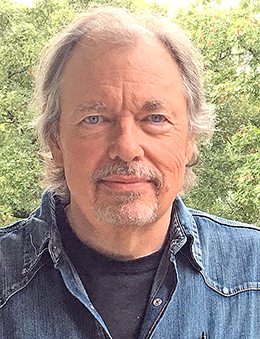Today we have a special guest. On the spirit phone is Samuel J. Crumbine, a Kansas doctor and public health pioneer. He campaigned against the common drinking cup, invented the flyswatter, and ordered bricks telling us not to spit on the sidewalk.
Dr. Crumbine, welcome to the column.
Thanks, glad to be here. Actually, I’m glad to be anywhere, since I died in 1954. Where am I, exactly?
A better question might be “when” are you. The year is 2020. You’re piped into my home office on Constitution Street in Emporia, Kansas.
How does that work?
I’m not sure, but don’t hit the red button on your end.
Yes, I see it. What’s it do?
Nobody knows, but the plans Thomas Edison left behind for the spirit phone explicitly say not to touch the red button. … Now, doctor, you spent your early career practicing medicine in Dodge City when it was a rip-roaring cattle town.
Oh, those cowboys! Now, that will teach you something about how disease spreads.
In fact, you were the inspiration for Doc, the character played by Milburn Stone on the television series “Gunsmoke.”
Sorry, never saw it. But I didn’t like how the doctor was portrayed on the radio. Too dark. …
Dr. Crumbine, the reason you’ve been summoned is to discuss a more urgent matter. Kansas again finds itself in the grip of a killer virus, part of a global pandemic like the one you saw in 1918 when you were the chief of the Kansas State Board of Health. This one is a little different — it doesn’t target mostly young people, like last time — but the trajectory of the epidemic has been disturbingly similar to that of a century ago.
How can I help?
Give us some insight into how, as the state’s chief medical officer, you dealt with it.
(Whistles). How much time do you have?
A thousand words or so.
Well, in any public health crisis it’s critical that the public be educated on the best and most scientific ways to avoid disease. That’s why we campaigned so hard in my day to educate the public about proper hygiene and to avoid practices that spread infection, such as the use of the roller towel or common drinking cups in passenger trains, hotels and schools.
You were also instrumental in promoting municipal sewage treatment and making sure cities had safe sources of drinking water.
Yes! In the early 20th Century, Kansas City took its drinking water from the river downstream of many sources of human and industrial waste. We corrected that situation, eventually! It has always been a fight to make people understand that the public health is everybody’s business, that we live in an interconnected world where what we do in our personal lives and businesses might make somebody we’ve never met deathly ill.
That fight is still going on, doctor.
No! How do they justify it?







